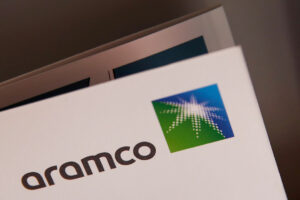Saudi’s Aramco returns to PHL market via 25% stake in Unioil
SAUDI ARABIA’S Aramco is returning to the Philippine market as it is set to acquire a 25% equity stake in Unioil Petroleum Philippines, Inc.

By Sheldeen Joy Talavera, Reporter
SAUDI ARABIA’S Aramco is returning to the Philippine market as it is set to acquire a 25% equity stake in Unioil Petroleum Philippines, Inc.
In separate statements, the Saudi oil giant and Unioil said they signed a definitive agreement, which is subject to certain conditions including regulatory approvals.
No financial details of the transaction were provided.
“This investment represents another step forward in our global strategy to expand Aramco’s retail network, and we look forward to introducing Aramco’s high-quality products and services to customers in the Philippines,” Yasser Mufti, Aramco’s executive vice-president of products and customers, said in a statement.
The deal comes 17 years after Aramco, widely considered the world’s largest oil producer, exited the Philippines after it sold its 40% stake in Petron Corp. In 1994, Aramco had invested in Petron when it was privatized by the Philippine government.
Aramco, the national oil company of Saudi Arabia, said in a statement that it aims to “capitalize on anticipated growth of the high-value fuels market in the Philippines.”
“It (the acquisition) represents further progress in Aramco’s strategic downstream expansion and growth of its global retail network, which aims to secure additional outlets for its refined products,” the company said.
Unioil, established by the Co family in 1966, is a diversified downstream fuels operator with 165 retail stations and four storage terminals in the Philippines.
“The strategic investment by Aramco is fully in line with our ambition to be the fuel retailer of choice and support our customers with top tier fuel solutions,” said Kenneth C. Pundanera, president of Unioil.
Janice Co Roxas-Chua, chief executive officer of Unioil, described the deal as “a major milestone in Unioil’s 58-year history.”
“We are confident that this will equip ourselves in accelerating our growth and development, further innovate, and strengthen our position as a leader in the wholesale and retail fuels market,” she said.
As part of the partnership, Unioil will introduce the Aramco’s brands and Valvoline-branded lubricants to Filipino consumers.
Asked to comment, Jayniel Carl S. Manuel, an equity trader at Seedbox Securities, Inc., said that Aramco’s global reputation could also elevate Unioil’s market standing, encouraging local and international confidence in its brand and potentially boosting market share.
“By securing a direct link to one of the world’s largest oil producers, Unioil may benefit from a more stable and cost-effective supply of crude and refined products, which would enhance its competitiveness in both the retail and industrial segments,” he said via Viber.
Mr. Manuel said that the “high-profile nature” of the investment signals that the Philippine downstream sector is an attractive environment for foreign investors, which may spur more international partnerships, heighten competition, and drive technological innovation.
Toby Allan C. Arce, head of sales trading at Globalinks Securities and Stocks, Inc., said Aramco’s re-entry into the Philippine retail market would likely stimulate competition, encouraging existing players to innovate and improve their services.
“The entry of a global leader like Aramco could bring more attention to the Philippines’ fuel market, indirectly benefiting local brands through heightened consumer and investor interest,” Mr. Arce said in a Viber message.
He said that the anticipated growth in infrastructure to support Aramco’s operations “may lower barriers to entry for other foreign investors, creating a ripple effect.”
Juan Paolo E. Colet, managing director at China Bank Capital Corp., said that the entry of Aramco as a strategic investor will better position Unioil for expansion and competition as a major fuel retailer.
“Aramco’s return to the local petroleum market also demonstrates optimism and conviction about the economic prospects of the country,” he said in Viber message.
He added that the move could “invite other global oil players who have no or limited domestic exposure to explore significant partnerships or investments in the Philippines.”



















